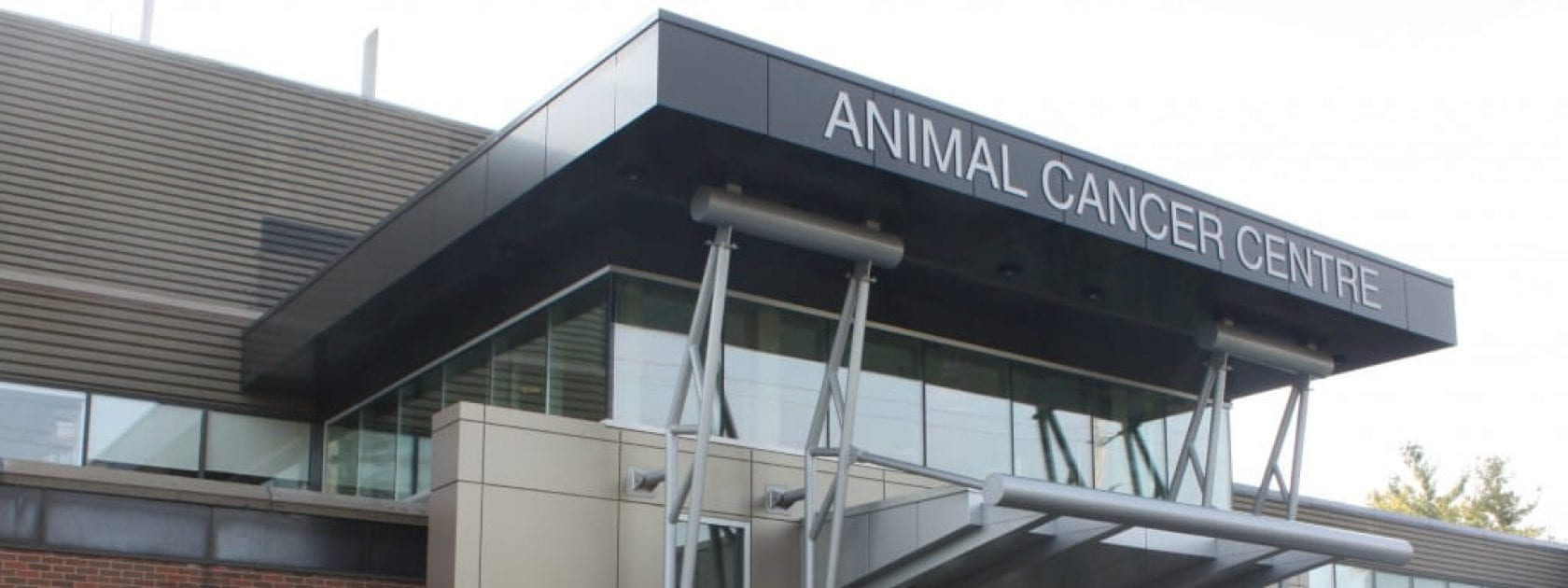** Please note this study is closed/completed and no longer recruiting patients **
Publication: Adjuvant Sirolimus Does Not Improve Outcome in Pet Dogs Receiving Standard-of-Care Therapy for Appendicular Osteosarcoma: A Prospective, Randomized Trial of 324 Dogs. (2021) LeBlanc AK, Mazcko CN, Cherukuri A, Berger EP, Kisseberth WC, Brown ME, Lana SE, Weishaar K, Flesner BK, Bryan JN, Vail DM, Burton JH, Willcox JL, Mutsaers AJ, Woods JP et al. Clinical Cancer Research: 27(11), 3005-3016.
Objective:
To evaluate whether rapamycin administered following Standard of Care therapy improves long-term disease control in canine appendicular osteosarcoma patients at OVC HSC.
Study Summary:
This study is investigating the addition of rapamycin to the standard of care (amputation followed by adjuvant carboplatinum chemotherapy) for canine appendicular osteosarcoma. This study will discover if pulmonary metastases can be inhibited or delayed (with improved survival time) by monitoring the dogs with physical exams and imaging (chest radiographs).
Rapamycin is a drug currently approved in human patients for immunosuppression with organ and bone marrow transplants. Rapamycin blocks the protein mTOR (mammalian Target Of Rapamycin) which occupies a key position in cellular growth and death (apoptosis) pathways and may play an important role in progression of many cancers. Therefore, recent studies in human patients suggest that mTOR blockade might be effective in the treatment of several cancers.
A recently completed National Institute of Health- National Cancer Institute (NIH-NCI) Comparative Oncology Trial Consortium (COTC) study of rapamycin in dogs with cancer determined a safe and tolerable dose and schedule for rapamycin in dogs.
Inclusion criteria:
- Diagnosis of osteosarcoma (histological/cytological)
- Dogs > 25kg
- Disease that is amenable to surgical removal via amputation
- No evidence of metastasis – physical exam, chest radiographs & abdominal ultrasound
- No previous therapy for osteosarcoma
- No significant co-morbid illness (including renal/hepatic failure, heart failure/clinical coagulopathy)
- Commitment to attend all OVC HSC required appointments & planned treatments
- Dogs must undergo post-mortem examination if they die during study period
Samples required:
- Blood & Urine (at time of enrollment & then every 3-4 weeks (for 7 months)
- Chest radiographs (at time of enrollment & then every 8 weeks (for 7 months)
Client Compensation:
- $1,000 towards amputation
- Once enrolled at OVC HSC, chest radiographs, bloodwork, physical examinations, carboplatin chemotherapy administration at no cost to owner (paid by study)
Contact:
Vicky Sabine (PhD), Clinical Research Coordinator
- Work Cell #: 226-218-0338
- Email: ovc.clinicaltrials@uoguelph.ca
Funded by: NIH COTC (https://ccrod.cancer.gov/confluence/display/CCRCOPWeb/Home)
Sponsored by: Morris Animal Foundation.
University of Guelph press release: http://news.uoguelph.ca/2016/04/helping-dogs-bone-cancer-aim-clinical-trial-u-s-cancer-institute/
<Back to Closed & Completed Trials


